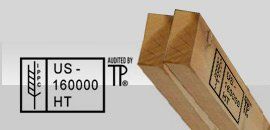European Union (EU): NMWP Export Regulations for Pallets
As of October 1, 2001, the Commission of the European Communities adopted emergency measures that required the treatment and marking of all new and used coniferous (e.g. pine, spruce, fir) non-manufactured wood packing material (NMWP) originating in the United States, Canada, China, or Japan and departing on or after October 1, 2001, to prevent the introduction of the pinewood nematode. The pinewood nematode is a microscopic eelworm which has caused extensive mortality in pines in Japan and China.
European concern over the possible introduction and establishment of the pinewood nematode heightened in the years preceding 2001 after an outbreak in Portugal and interceptions of the pinewood nematode in NMWP from the United States, Canada, China, and Japan. The source of the outbreak in Portugal was not positively identified but packaging material was believed to have been the likely pathway.
The EU emergency measures allow three treatment options for coniferous NMWP: heat treatment (HT), fumigation or chemical pressure impregnation (CPI). In all cases treated wood products must bear a mark indicating the organization that treated the NMWP and the location of that organization. The EU requires that the HT program be an official program with official marks.
Shipments not meeting these requirements may be quarantined or rejected by the recipient nation, upon arrival. At Popp Brother’s we use our in-house heat treating facility to manufacture all your pallets, skids, or crates so that they meet the EU requirement for all goods shipped to the European Union. Each one of our products receives the appropriate stamp before they are sent out the door to ensure customs compliance.
China: SWPM Export Regulations for Pallets
In the Fall of 1999, the government of the People’s Republic of China established requirements concerning the importation of coniferous solid wood packing material (SWPM). This has since been updated to include all solid wood packaging (SWPM). This was in response to China’s desire to prevent the introduction of exotic pests, especially the pinewood nematode. APHIS, the US governmental agency charged with implementing these requirements, created a certificate that allowed the exporter of goods to attest to the fact that coniferous material had been heat treated by being subject to a minimum a core temperature of 56°C for 30 minutes. On December 27, 1999 APHIS published an interim rule requiring the certificate. A certificate is no longer required as China has agreed to the IPPC requirements of having the pallets marked with the appropriate symbol from an approved agency.
Shipments not meeting these requirements may be quarantined or rejected by the government of China, upon arrival. At Popp Brother’s we use our in-house heat treating facility to manufacture all your pallets, skids, or crates so that they meet the APHIS requirement for shipment of goods to the People’s Republic Of China. Each of our products receives the appropriate stamp before they are sent out the door to ensure customs compliance.
Other countries: SWPM Export Regulations for Pallets
APHIS requires treatment of all solid wood packing material (SWPM) and some countries will only accept heat-treated wood.
For a complete list of countries that require ISPM 15 and their dates of enforcement, https://www.aphis.usda.gov/aphis/ourfocus/importexport

